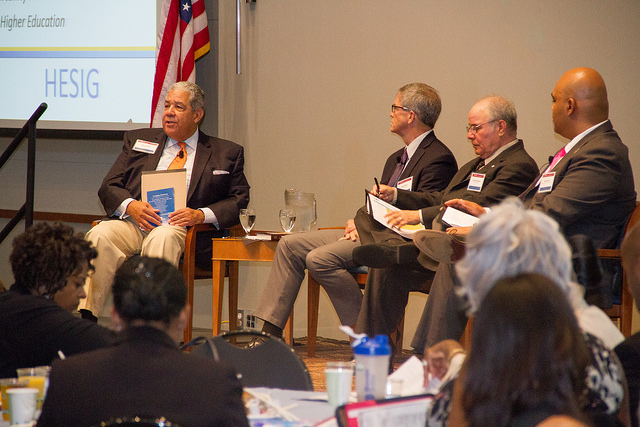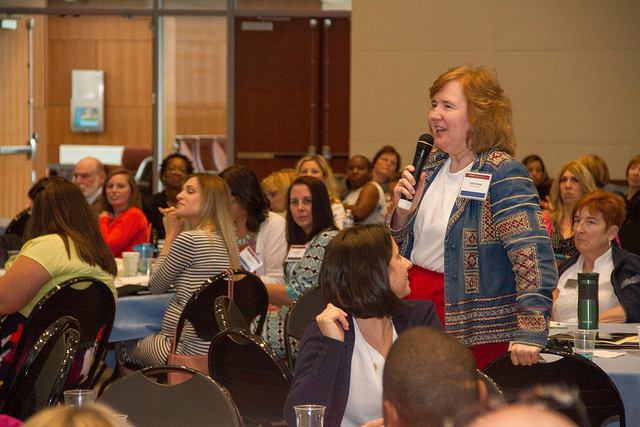College Outcomes Symposium
College Outcomes Symposium


More than 200 higher education leaders convened to share best practices at the Student Outcomes Symposium, hosted by the William J. Hughes Center for Public Policy at Stockton University on June 15. The symposium explored students’ academic success, workforce preparation and civic participation, and was attended by career counselors, academic advisers, admissions counselors and employers from 32 colleges and universities.
“Students come first at Stockton University. Giving our students the skills and abilities needed to learn for a lifetime and to start successful careers is at the heart of the missions of our colleges and universities,” Kesselman continued, outlining the broad purpose of the symposium. “This is the means by which we build a more prosperous and civil New Jersey. Only truly educated citizens can protect our special American sense of opportunity, liberty and equality.
"Kesselman was joined on a leadership panel with David Payne, vice president and chief operating officer of Educational Testing Service Global Education Division, and Hasani C. Carter, who currently serves as the state director of the New Jersey Educational Opportunity Fund (EOF) within the Office of the Secretary of Higher Education.
David Payne focused on student outcomes from a global perspective and about how we measure them and for what purposes. He stressed ongoing efforts to measure outcomes in a meaningful way for students, educators and employers, and growing interest in evidence-based assessment of civic learning.
Carter outlined the College Success Collaborative, an initiative of Secretary of Higher Education Rochelle Hendricks which involves pre-tertiary, higher education and community-based organizations. The initiative also researches the broad set of skills needed to succeed beyond college and the workplace, such as tolerance for others and global awareness.
Darryl Greer, a Senior Fellow of the Hughes Center’s Higher Education and Strategic Information and Governance (HESIG) project, presented research on student attitudes toward college value and on counseling and advising services. The HESIG research reveals recent college graduates believe the most important college outcome is “to get a better job,” with 30 percent naming that as their top priority. One in three students says colleges are doing “extremely well” in preparing them for a job and career.


